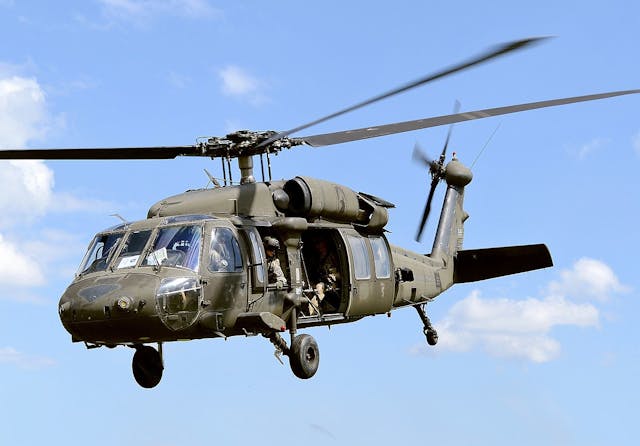UH 60 Black Hawk Helicopter Variations and Their Uses
UH 60 Black Hawk Helicopter Variations and Their Uses
Blog Article
The Effect of Lasting Practices on the Future of Aircraft Workflow and Emissions Decrease
As the air travel sector faces boosting analysis over its ecological impact, the adoption of sustainable methods becomes an important path toward future airplane operations and exhausts decrease. Innovations in sustainable air travel fuels and improvements in crossbreed propulsion technologies stand at the leading edge of this change, appealing substantial decreases in greenhouse gas discharges. The effective integration of these campaigns pivots on a variety of elements, including governing structures and market collaboration. The inquiry stays: just how will these advancing practices reshape the dynamics of air traveling and add to an extra lasting future?

Summary of Lasting Practices
Lasting methods in aircraft procedures include a variety of strategies targeted at lowering environmental influence while keeping operational effectiveness. These practices are essential in the aeronautics industry's dedication to minimizing its carbon impact and adhering to worldwide environmental requirements. Key initiatives include maximizing flight paths to minimize fuel usage, enhancing upkeep procedures to make certain airplane run at peak effectiveness, and applying sophisticated modern technologies such as winglets and lightweight products that boost the rules of aerodynamics.

Educating and involving staff on sustainability practices likewise play a crucial function, promoting a culture of ecological responsibility within companies. Overall, the assimilation of these lasting practices not only assists minimize exhausts but likewise enhances the long-term feasibility of the aviation market, guaranteeing it satisfies the needs of both consumers and regulative bodies while contributing to worldwide sustainability objectives.
Innovative Fuel Alternatives
Countless cutting-edge gas choices are arising as pivotal options to minimize the aviation sector's dependence on conventional fossil gas. Among these options, Lasting Aeronautics Gas (SAFs) have actually gained considerable attention because of their possible to decrease lifecycle greenhouse gas emissions by approximately 80% compared to conventional jet fuels. SAFs are obtained from various feedstocks, including waste oils, farming residues, and even algae, making them a versatile option for the industry.
One more appealing choice is hydrogen gas, which, when utilized in fuel cells, generates just water vapor as a byproduct. Furthermore, electric propulsion systems are being discovered, leveraging battery technology to power airplane.
Finally, biofuels originated from biomass are being checked out, supplying a renewable alternative that can be mixed with standard fuels. Jointly, these innovative fuel options represent an essential action toward accomplishing a lasting air travel environment, straightening with worldwide emissions reduction targets and improving the industry's ecological stewardship.
Technical Developments in Aviation

Exactly how can technical innovations reshape the future of aeronautics? The integration of innovative innovations is crucial in changing aircraft procedures, improving efficiency, and decreasing exhausts. Technologies such as electrical and hybrid propulsion systems go to the leading edge, encouraging substantial decreases in fuel usage and greenhouse gas emissions. These systems take advantage of developments in battery technology and energy administration, enabling aircraft to operate with a reduced environmental footprint.
Moreover, the implementation of innovative products, such as lightweight composites, adds to boosted the rules of aerodynamics and fuel efficiency. Making use of expert system and device understanding in trip operations enhances route planning and lowers fuel melt by enabling real-time adjustments based on climate and web traffic conditions. In addition, the growth of self-governing and from another location piloted aircraft systems stands to revolutionize freight and guest transportation, potentially raising effectiveness while minimizing human error.
In addition, sustainable air travel technologies, consisting of advanced air website traffic administration systems, can improve procedures and decrease congestion, resulting in lower emissions throughout trip. These developments collectively represent straight from the source a paradigm change in aviation, assuring a future where sustainability and operational effectiveness are intertwined, thereby sustaining the market's dedication to decreasing its ecological influence.

Regulative Framework and Compliance
Due to the growing focus on ecological stewardship within the air travel sector, the regulative structure controling airplane procedures is progressing to promote lasting methods. Governing bodies, such as the International Civil Aviation Organization (ICAO) and different site here nationwide air travel authorities, are introducing stringent guidelines intended at lowering emissions and enhancing operational efficiency.
These policies usually consist of the adoption of Sustainable Air travel Fuel (SAF), which has actually been acknowledged as a crucial element in accomplishing reduced carbon footprints. Additionally, compliance with these guidelines calls for airlines to implement innovative technologies and operational practices, such as maximized flight courses and boosted air website traffic administration, to decrease fuel usage.
Furthermore, the enforcement of exhausts trading systems and carbon countering efforts is coming to be increasingly widespread, engaging airlines to check and report their discharges accurately. Non-compliance can lead to substantial charges, thus pressing drivers to focus on sustainability in their service designs.
Eventually, the evolving regulative landscape not only drives innovation and financial investment in environment-friendly modern technologies but also fosters a society of liability within the air travel sector. As these frameworks remain to create, the concentrate on sustainable methods Go Here will be essential to achieving the field's long-term ecological goals.
Future Trends in Aircraft Operations
As the aviation market adapts to a significantly stringent governing environment, future fads in airplane procedures are established to focus on innovative services that better enhance sustainability and efficiency - uh 60. Secret developments will likely consist of the adoption of advanced air website traffic monitoring systems, which utilize real-time data and expert system to maximize flight courses, reducing gas intake and exhausts
Another substantial pattern is the boosted combination of lasting aviation fuels (SAFs) These choices to conventional jet fuel, derived from renewable sources, can substantially decrease lifecycle greenhouse gas emissions. The industry's commitment to SAFs will likely accelerate as airline companies collaborate with fuel producers to ensure availability and cost-effectiveness.
Additionally, the push in the direction of electrification and crossbreed propulsion systems is getting momentum. Emerging aircraft designs will certainly incorporate these modern technologies, offering quieter and a lot more reliable operations, especially for short-haul flights.
Final Thought
The fostering of sustainable aeronautics gas, paired with advancements in hybrid and electric propulsion systems, is important for decreasing lifecycle greenhouse gas discharges. Enhancing flight paths and accepting innovative innovations contribute to a quieter and more environmentally friendly air travel sector.
Innovations in lasting aeronautics gas and improvements in hybrid propulsion technologies stand at the leading edge of this improvement, encouraging significant decreases in greenhouse gas emissions.Many innovative fuel alternatives are emerging as pivotal solutions to reduce the aviation market's dependence on typical fossil fuels - uh 60. Among these alternatives, Lasting Aeronautics Gas (SAFs) have gained considerable focus due to their possible to lower lifecycle greenhouse gas discharges by up to 80% compared to conventional jet gas.An additional considerable trend is the boosted combination of sustainable air travel gas (SAFs) The fostering of lasting aeronautics fuels, paired with advancements in electric and hybrid propulsion systems, is vital for minimizing lifecycle greenhouse gas exhausts
Report this page